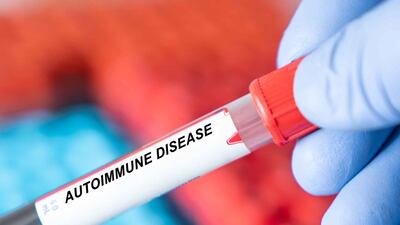Immune Disorders
2030 sales forecasts for Novo’s obesity hope are an order of magnitude larger than its closest rival among 2025’s expected debutantes.
New pivotal data on Regeneron and Sanofi’s antibody in chronic urticaria are underwhelming, though probably sufficient for approval. A green light may beckon in bullous pemphigoid, too.
Deal Snapshot: The Belgian company follows a tradition of Western pharma companies relying on local expertise to market their products in China.
Being the Chinese biotech’s backbone asset in the autoimmune disease area, telitacicept, a BlyS/APRIL dual targeting fusion protein, has hit its target in a China-only Phase III study in generalized myasthenia gravis. The candidate is also being investigated in global Phase III trials in systemic lupus erythematosus and Sjögren's syndrome.
The European Medicines Agency has started reviewing new marketing applications for 10 products, including Blenrep, GSK’s previously approved multiple myeloma drug that was withdrawn from the market, and vimseltinib, which could become the EU’s first oral treatment approved for TGCT.
King’s College London has released a freely available ‘Human Gut Microbiome Atlas’ to help researchers better understand how microorganisms in the gut impact disease.
Nine new entries targeting a wide range of unmet medical needs. Several EU marketing approvals and two withdrawals. And an accelerated assessment tool that was seldom used. These were among the activities noted as part of the European Medicines Agency’s priority medicines scheme during the first half of 2024.
Major Japanese firm picks up US drug discovery platform company Jnana in apparent bid to strengthen discovery capabilities and build its mid-stage R&D presence in the renal area.
In June, the US Supreme Court reversed the Chevron doctrine, a long-standing precedent requiring courts to defer to regulatory agencies when statutory language was ambiguous. But will that decision prevent the FDA’s final rule on laboratory developed tests from taking effect? A legal expert weighs in.
Already abandoned for psoriasis and psoriatic arthritis, the failure of Ventyx's TYK2 inhibitor for Crohn’s disease signals the end of the project, leaving Takeda and Alumis as BMS's principal rivals in the field.
The effort and expense to maintain the committee, which met only 10 days in the past 15 years, can no longer be justified, the FDA said. The terminated panel’s responsibilities will be integrated into the Vaccines and Related Biological Products Advisory Committee.
Two orphan drugs are among a host of products that the European Medicines Agency’s human medicines committee has OKd for pan-EU approval.
Big biopharma is struggling to find the next generation of cancer immunotherapies, but the sector’s smallest companies might just have the platforms of the future.
Eisai/Biogen could this week learn whether the European Medicines Agency will give the thumbs up to market lecanemab across the EU for early Alzheimer’s disease.
Artiva grossed $167m by selling more shares than previously planned, but at a significantly lower price per share than it proposed earlier in the week, to fund its NK cell therapy programs.
New modalities and potential best-in-class challengers have excited investors in 2024 to date, but companies whose drugs have underperformed on the market have been punished.
Truvian Health said it raised $74m in venture capital funding, which the company plans to use in part to try to secure US FDA clearance for its blood testing platform.
The Munich-based firm looks to pioneer the novel iRhom2 mechanism to dial down inflammation while maintaining immune homeostasis.
A Phase IIb trial testing Cartesian’s autologous mRNA-engineered CAR-T therapy for the treatment of generalized myasthenia gravis (MG) met the primary endpoint.
The EU guideline on clinical investigation of medicinal products for psoriatic arthritis needs updating, including revised recommendations on the selection of the primary endpoint.
ADVERTISEMENT



















